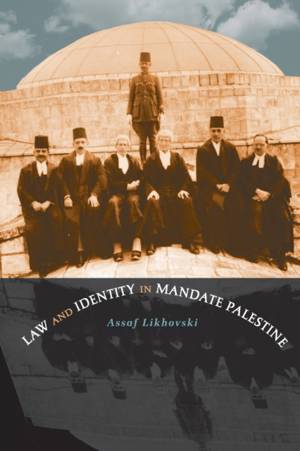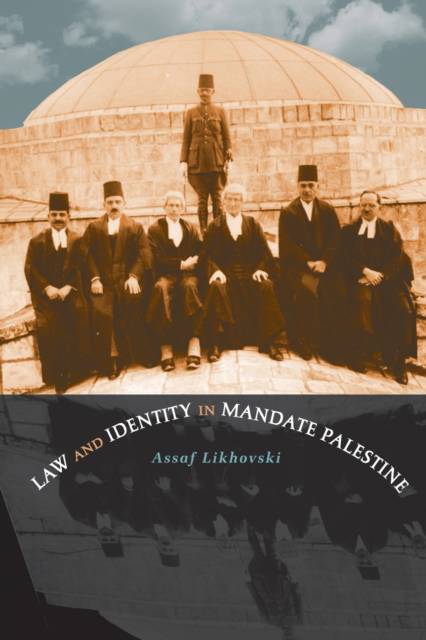
- Afhalen na 1 uur in een winkel met voorraad
- Gratis thuislevering in België vanaf € 30
- Ruim aanbod met 7 miljoen producten
- Afhalen na 1 uur in een winkel met voorraad
- Gratis thuislevering in België vanaf € 30
- Ruim aanbod met 7 miljoen producten
Zoeken
€ 61,45
+ 122 punten
Omschrijving
One of the major questions facing the world today is the role of law in shaping identity and in balancing tradition with modernity. In an arid corner of the Mediterranean region in the first decades of the twentieth century, Mandate Palestine was confronting these very issues. Assaf Likhovski examines the legal history of Palestine, showing how law and identity interacted in a complex colonial society in which British rulers and Jewish and Arab subjects lived together.
Law in Mandate Palestine was not merely an instrument of power or a method of solving individual disputes, says Likhovski. It was also a way of answering the question, "Who are we?" British officials, Jewish lawyers, and Arab scholars all turned to the law in their search for their identities, and all used it to create and disseminate a hybrid culture in which Western and non-Western norms existed simultaneously. Uncovering a rich arsenal of legal distinctions, notions, and doctrines used by lawyers to mediate between different identities, Likhovski provides a comprehensive account of the relationship between law and identity. His analysis suggests a new approach to both the legal history of Mandate Palestine and colonial societies in general.
Law in Mandate Palestine was not merely an instrument of power or a method of solving individual disputes, says Likhovski. It was also a way of answering the question, "Who are we?" British officials, Jewish lawyers, and Arab scholars all turned to the law in their search for their identities, and all used it to create and disseminate a hybrid culture in which Western and non-Western norms existed simultaneously. Uncovering a rich arsenal of legal distinctions, notions, and doctrines used by lawyers to mediate between different identities, Likhovski provides a comprehensive account of the relationship between law and identity. His analysis suggests a new approach to both the legal history of Mandate Palestine and colonial societies in general.
Specificaties
Betrokkenen
- Auteur(s):
- Uitgeverij:
Inhoud
- Aantal bladzijden:
- 328
- Taal:
- Engels
- Reeks:
Eigenschappen
- Productcode (EAN):
- 9781469614908
- Verschijningsdatum:
- 1/03/2014
- Uitvoering:
- Paperback
- Formaat:
- Trade paperback (VS)
- Afmetingen:
- 156 mm x 234 mm
- Gewicht:
- 503 g

Alleen bij Standaard Boekhandel
+ 122 punten op je klantenkaart van Standaard Boekhandel
Beoordelingen
We publiceren alleen reviews die voldoen aan de voorwaarden voor reviews. Bekijk onze voorwaarden voor reviews.







